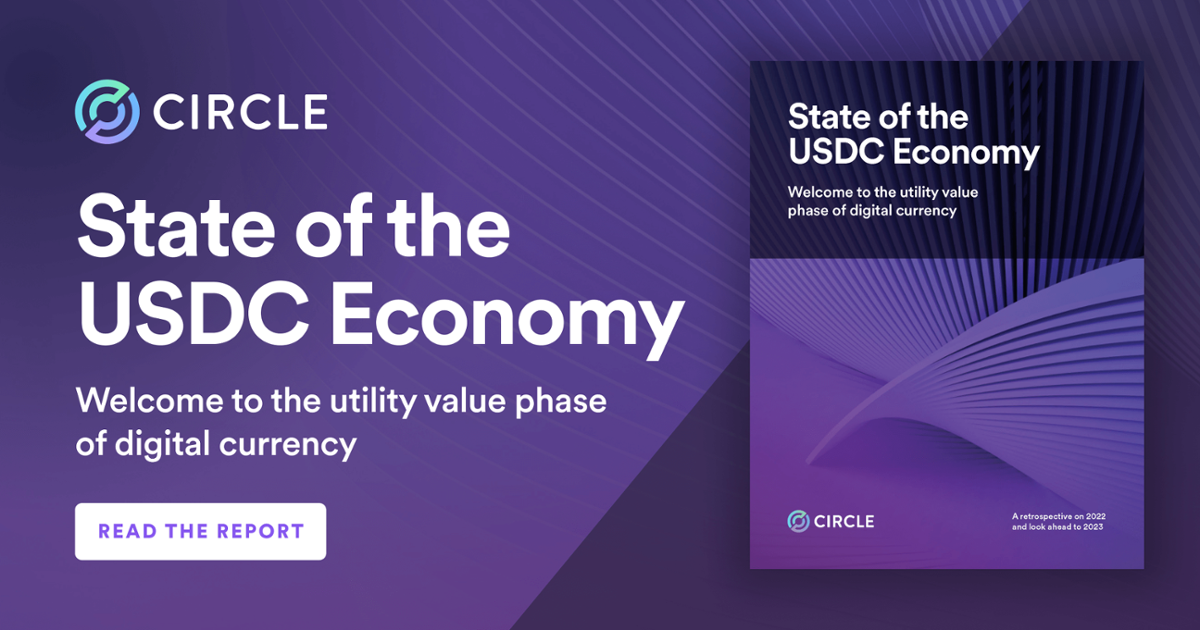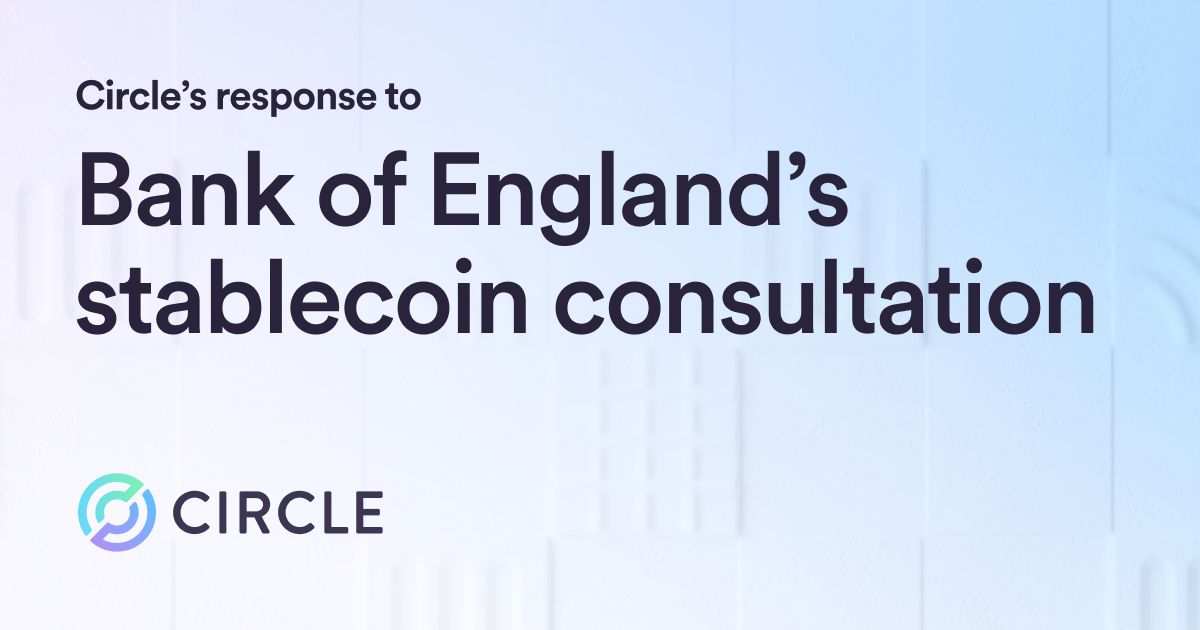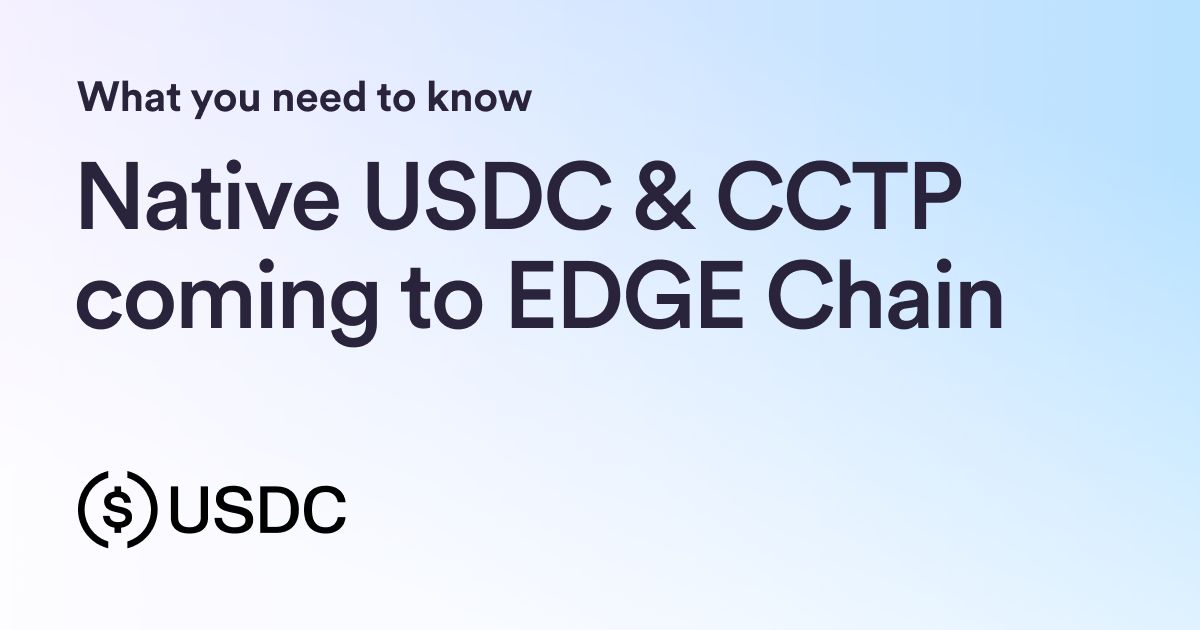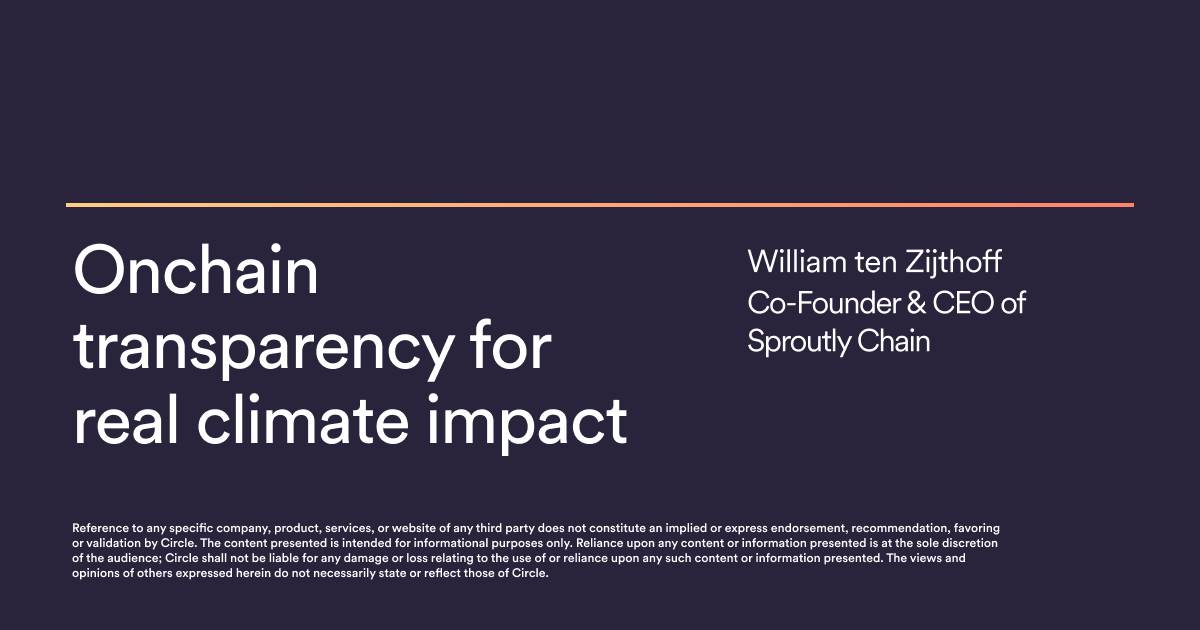Jeremy Allaire's foreward to The State of the USDC Economy annual retrospective, spelling out utility value of responsible financial services innovation.

Below is the foreword from the report “State of the USDC Economy – Welcome to the utility value phase of digital currency.”
Download the full State of the USDC Economy report and see our agenda for World Economic Forum #WEF23 at Circle.com/Davos
Dollar Digital Currencies Are Driving the Next Evolution of Money, Payments, and Finance
Ten years ago, I co-founded Circle with the vision that traditional money could be brought natively onto the internet in the form of digital currency and made available on open, interoperable, global networks. Ushering in a world of frictionless value exchange that mirrored the frictionless information exchange and communications that marked the first decades of the internet has animated Circle’s work ever since.
In 2013, the technological maturity, industry understanding, and regulatory awareness of digital currency and blockchain technology was virtually non-existent. Indeed, the necessary conditions for building a protocol for “dollars on the internet” did not even exist. We knew that this would be – at least – a ten to twenty year journey and that the impact of digital currency on the open internet would be even more profound than the internet of information.
Now, ten years later, USD Coin (USDC), the world’s leading regulated dollar digital currency, is breaking into the mainstream. Across nearly every metric and trend, the USDC Economy is growing, healthy, and on its way to being a major force in facilitating economic activity at internet scale – reaching people and markets that would not be possible if to be banked depends on fixed infrastructure or financial walled gardens.
While the era of speculation on bitcoin and other crypto assets has come through a tumultuous year, digital currencies such as USDC herald the necessary shift into the utility value phase of blockchains and programmable, composable always-on money. In the internet age, promoting these responsible innovations is not about competing with the traditional financial system, but rather completing unfinished work.
To put the opportunity in perspective: dollar digital currencies like USDC could begin absorbing significant portions of the more than $2 trillion in payments industry revenue and become a new digital expression of the $21 trillion M2 money supply.
Merchants, to take one example, understand the significance of this evolution. More than 85% are prioritizing enabling digital currency payments. While nascent, point-of-sale payments for USDC are here. And many traditional payment providers – including Checkout.com, Mastercard, Plaid, Stripe, Visa, Worldpay from FIS, among others – are building with USDC to make it as easy as possible for merchants to accept it.
Public blockchain infrastructure is going through its “dial-up to broadband” upgrade, fostering near-instant, highly-secure, programmable and low-cost transactions. Web2 builders and developers are flocking to Web3, as more and more startups, enterprises, and traditional payments and financial services firms look to connect into the internet of value.
Meanwhile, policymakers globally are sharpening their focus, ushering in much-needed regulation for how trusted digital currencies can be supervised – in a consistent and harmonized manner – by banking and payments regulators.
Since our founding, Circle has been animated by the idea that a new global economic system could be built on an internet-native foundation – open, global and interoperable public internet infrastructure for the storage and transmission of value, and ultimately for the intermediation of capital more broadly. That vision is becoming a reality and 2023 will be an important year in the next evolution of money, payments, and finance.
As our first State of the USDC Economy annual retrospective spells out, the green shoots of global utility value are sprouting up everywhere, catalyzing a wave of open, responsible financial services innovation that can improve pathways to prosperity, while protecting the integrity of the global financial system.






